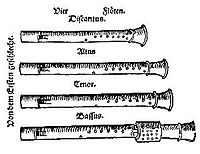
Photo from wikipedia
Dogon masks have been famous for a long time—and none more so than the kanaga mask, the so-called croix de Lorraine. A host of interpretations of this particular mask circulate… Click to show full abstract
Dogon masks have been famous for a long time—and none more so than the kanaga mask, the so-called croix de Lorraine. A host of interpretations of this particular mask circulate in the literature, ranging from moderately exotic to extremely exotic. This contribution will focus on one particular mask situated within the whole mask troupe, and it will do so in the ritual setting to which it belongs: a second funeral, long after the burial. A description of this ritual shows how the mask troupe forms the constantly moving focus in a captivating ritual serving as second funeral. Thus, the mask rites bridge major divides in Dogon culture, between male and female, between man and nature, and between this world and the supernatural one. They are able to do so because they themselves are in constant motion, between bush and village and between sky and earth. Masks are matter in motion and symbols in context. Within imagistic religions such as the Dogon one, these integrative functions form a major focus of Dogon masks rituals—and hence, to some extent, of African mask rituals in general. In the Dogon case, the ritual creates a virtual reality through a highly embodied performance by the participants themselves. Then, the final question can be broached, that of interpretation. What, in the end, do these masquerades signify? And our kanaga mask, what does it stand for?
Journal Title: Religion
Year Published: 2018
Link to full text (if available)
Share on Social Media: Sign Up to like & get
recommendations!